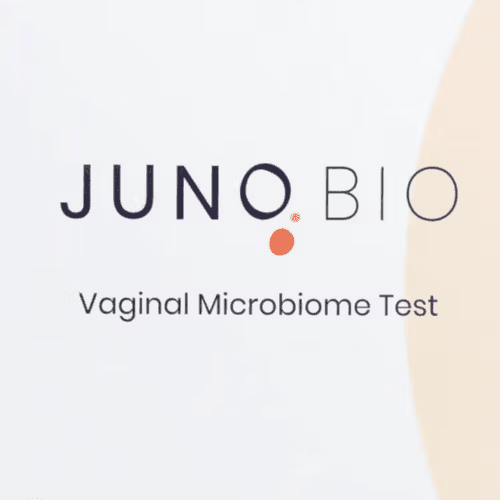Mycoplasma bacteria, including Ureaplasma, are tiny organisms that enjoy life on mucosal cells – that is, they live on the outside of the cells that line the lungs, nose, vagina and urethra.
Ureaplasma is one such species of the Mycoplasma genus, and is typically unresponsive to most antibiotics.
There are now several species of Ureaplasma identified – Ureaplasma urealyticum and Ureaplasma parvum. Differentiation is only by polymerase chain reaction (PCR) testing, which tests for DNA/RNA.
Mycoplasma species are hard to culture in labs because they are very fussy about their growing conditions, known as fastidious bacteria.
Where the Ureaplasma strains like to live
Out of the four mains infectious types of Mycoplasma, Mycoplasma hominis and Ureaplasma species are most likely to inhabit the genitals.
Mycoplasma pneumoniae is rarely found in healthy people, and causes pneumonia.
U. parvum is the most commonly found in clinical specimens, but U. urealyticum is more pathogenic, particularly in male urethritis.
What we know about Ureaplasma in general
- Frequently detected in lower urogenital tracts of healthy adults
- Can produce vaginal and urethral infections in men and women
- May be transmitted by direct contact between people – genitals or mouths (or a combination of both), mother to child at birth or in utero, by transplant
- May be involved in female urethral syndrome
- Do not cause bacterial vaginitis, but they may proliferate in patients with bacterial vaginosis and contribute the condition
- May cause involuntary infertility
- May cause placental inflammation and invade the amniotic sac early, causing adverse pregnancy outcomes
- Found in the blood of about 20 per cent of women with postpartum or postabortal fever, but not from afebrile women who had abortions, or from healthy pregnant women
- Contributes to respiratory illness
- In amniotic fluid causes up-regulation of proinflammatory cytokines, leukocytes, and prostaglandins, which could contribute to premature delivery and fetal lung injury
- Has been isolated from maternal blood, umbilical cord blood, and newborn baby blood
- Can invade cerebrospinal fluid (CSF) and induce pleocytosis
- Can cause invasive disease of the joints and respiratory tract
- Species produce urease and can produce struvite calculi in the urinary tract
Ureaplasma in the vagina
- Ureaplasma has been isolated from cervicovaginal specimens in 40-80 per cent of asymptomatic women who are sexually active
- Only some adults colonised in the upper urogenital tract develop symptoms
- Nongonococcal urethritis is the most common sexually transmitted infection
- Ureaplasma may account for a significant portion of cases not due to chlamydia
- Less than five per cent of children and 10 per cent of adults who are not sexually active are colonised with genital mycoplasma microorganisms
Who gets Ureaplasma?
Anyone can contract Ureaplasma, because behaviour – rather than race – is more likely to spread it. This means that sexual behaviour and socioeconomic status are the more common predictors of infection.
People of African descent appear to be colonised more than Caucasians of European descent, but whether this is a true ethnic/racial difference or a socioeconomic factor is not known.
Women carry Mycoplasma species more than men. Age is not so much a factor as is sexual activity, but neonates can contract Mycoplasma from their mothers. Adolescents and older children rarely have Ureaplasma.
Diagnosis of Ureaplasma
Doctors may be unfamiliar with Mycoplasma and Ureaplasma, and testing for them is complicated by a lack of facilities in many clinics. Identifying these organisms may end up being the last resort instead of a standard of testing.
Because these microbes are resistant to antibiotics, treatment with antibiotics may be unsuccessful. Culture can be taken for Ureaplasma species using specialised media and techniques, with results available in two to five days.
Most hospitals don’t provide PCR testing on-site, and routine bacterial cultures cannot detect Ureaplasma species. Vaginal, cervical or urine swabs can be taken, however avoid taking specimens with lubricant or antiseptics.
Symptoms of Ureaplasma or Mycoplasma infection
- Urethritis (Ureaplasma only)
- Kidney infection
- Cystitis
- Pelvic inflammatory disease (M. hominis only)
- Urinary calculi (Ureaplasma only)
- Endometritis or chorioamnionitis (intra-amniotic infection)
- Infectious arthritis
- Surgical and nonsurgical wound infections
- Preterm labour (Ureaplasma only)
- Bacteremia
- Pneumonia
- Meningitis
The bacteria may play only a minor role, however it can be a simultaneous infection. This infection may mimic gonorrhoea, chlamydia, or other genital mycoplasmal species.
Treatment of Ureaplasma
With tetracycline resistance common in many isolates, the drug of choice is now macrolides, fluoroquinolones or still indeed tetracyclines.
A week of doxycycline works well in cases of urethritis due to Ureaplasma species. Sexual partners should be treated.
Condoms or other barrier methods are not effective at preventing transmissions, since Ureaplasma is often part of natural flora, and is opportunistic.
People who do not harbour Ureaplasma are typically not sexually active – it seems to be the domain of the sexually active person.




